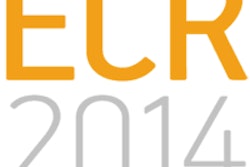BI-RADS is effective as a quality assessment tool when compared to breast screening without using the classification system, at least in the Dutch breast cancer screening program, researchers found.
A group from the National Expert and Training Centre for Breast Cancer Screening and other centers in the Netherlands retrospectively assessed BI-RADS in a pilot study in the Amsterdam screening region (European Radiology, 14 March 2012).
All told, 93,793 screened women were included, according to lead author J.M.H. Timmers and colleagues. BI-RADS categories, workup, age, final diagnosis, and final tumor classification were available from the screening registry. Breast cancer was diagnosed in 485 women and 253 interval cancers were reported, resulting in 66% sensitivity and 99% specificity. BI-RADS 0 had a lower positive predictive value (PPV) (14.1%) than BI-RADS 4 (39.1%) and BI-RADS 5 (92.9%).
The significant differences in PPV, invasive procedures, and tumor size corresponded with stratification into BI-RADS categories, the authors found.
BI-RADS "revealed interobserver variability between screening radiologists and can thus be used as a quality assessment tool in screening and as a stratification tool in diagnostic workup," they concluded.



















